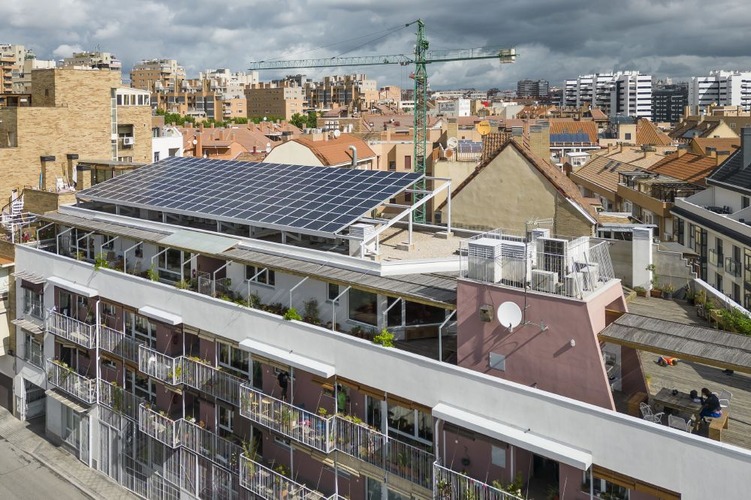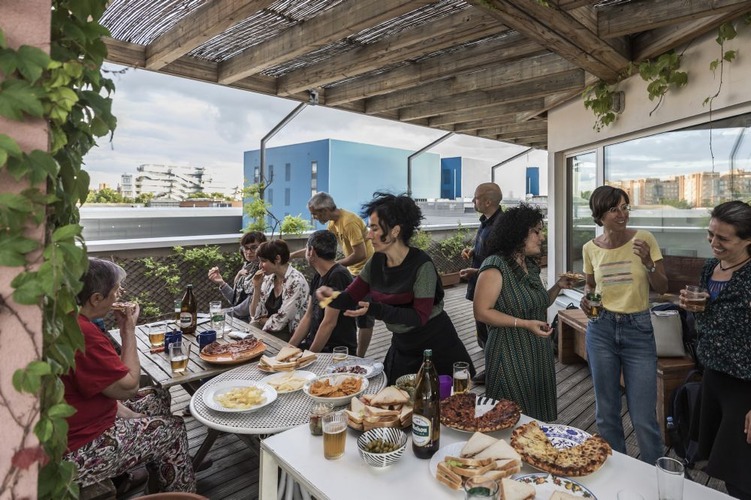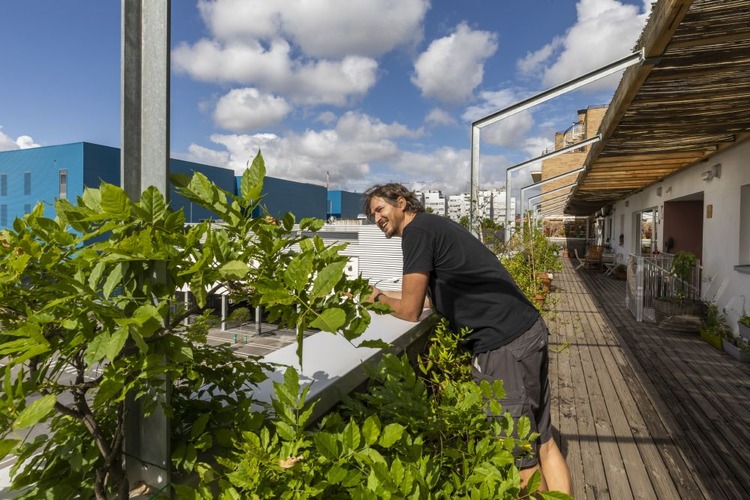
A committed group of activists got together to build a sustainable future for their families at the Las Carolinas Entrepatios project
By Anna Pozzi
Finding affordable housing across the major cities of Europe is not easy. Even more difficult is finding energy-efficient buildings made from renewable materials.
In Madrid’s southern suburbs17 families found a novel solution. The Las Carolinas Entrepatios project. They formed a housing cooperative at the height of the Covid-19 pandemic and started building their own future.
Everyone has made an initial investment and pays a monthly sum for the right to use their apartment. This is somewhere between ownership and renting, which enables people to enjoy a house indefinitely and take part in decisions about its design and subsequent life, but without buying it. No one is an owner, and no one can sell. Spaces and common property are managed together.
Some three years later, the inhabitants – about 30 adults and 20 or so children – share communal spaces and have their own family apartments.
The project in the Usera district of Madrid has won a number of awards, including the Low Carbon Prize, as part of the 2020-2021 Green Solutions Awards and the 2019 European Collaborative Housing Awards.

Iñaki Alonso, the 53-year-old father of two children, is one of the pioneers of this initiative and one of the architects who, together with the sAtt y TecnicaEco studio, designed the building, explained: ‘For about 20 years, I have been interested in architectural ecology with all that it means: attention to materials, use of renewable energy, efficiency energy, reduction of carbon emissions, water recycling, circular economy.
‘This project is an example of architecture serving people, constructing not just a building but a community of neighbours. It’s a dream come true. While we each have our own private spaces, here we try to live not in a house but in an open and collaborative community.’
The residents who seem to have taken to this concept most readily are the many children who live in the Las Carolinas building. The older kids play basketball or soccer in the inner courtyard while the younger ones whizz around on their little bicycles or scooters on the vast terrace on the top floor, where there is also a large common room with a kitchen and a space for musical instruments. Friday evenings are generally the time to get together for a beer and some music, while different families host the children based on their age group for a pizza-film night.

Nacho Garcia Pedraza, 48, has been part of the project since the outset, that is, since the first attempt was made back in 2004 to obtain land from the local authority. He said: ‘After the second failure, but also after gaining more experience, we founded the Entrepatios cooperative and started this third attempt, which was successful.’
He now works for a social cooperative, along with six other people who live in the building. It provides technical services to promote similar projects.
Luis Rico, 45, is the coordinator of the Ecologistas en Acción movement and is convinced that ‘there can be no solutions to social problems if we ignore environmental ones, and vice versa’.
The Las Carolinas building community members are trying to put this into practice: once a month, they hold a general assembly and regularly do communal work. One group is in charge of buying organic products, while others deal with various aspects of community life, from looking after the children to following certain rules, from economic to energy issues.
Community is also a very important aspect for Maykel Moya, 43, who lives here with his wife and two children. Having left Cuba to study in Spain, he felt the lack of a family and friendship network, especially in a big city like Madrid. But he has found a network here. He’s a keen musician playing the drums and introduced weekly music sessions for the building’s residents.

As an engineer, he also manages the Internet connection (there’s one for the entire building), maintains the photovoltaic system, and recycles water. The basement has a large tank where rainwater and water from showers and sinks are purified. The water is then reused for gardening and sanitation. ‘These are services that everyone performs according to their skills,’ he explained. ‘But above all there is a lot of sharing and mutual help, which often comes in handy, especially in dealing with children or difficulties.’
Nati Garcia and Jose Lopez are the oldest members of the group. They are 67 and 68, respectively, and have a 40-year-old son. Nati, who is a social educator, said: ‘This is how I always wanted to live. There is a great sense of belonging and you feel welcome. Of course, there are differences of opinion, but problems and conflicts are managed with a view to the common good.’
Today, in its own small way, this project is becoming ‘contagious’ and is a model for others. Indeed, there’s already another building a few kilometres away in the district of Vallecas. Here ten families that are also involved in the Entrepatios cooperative began living together in July 2022, while a third project is in the early stages. In the meantime, however, these initiatives are gradually helping to spread a new mentality. It starts with neighbours in the same area, expanding networks, and increasingly promoting the idea of ecological architecture and a model for society that places people and relationships at the centre.




